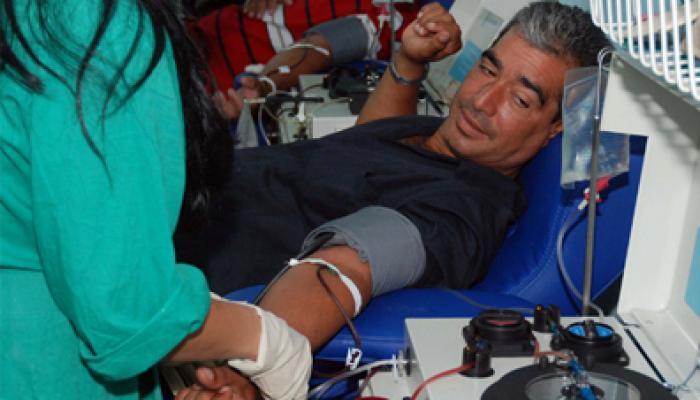Havana, June 11 (RHC) -- The risk of getting infected by a blood transfusion in Cuba is less than one percent, a rate similar to that of developed nations, an expert said Tuesday in Havana.
Luis Enrique Ulloa Perez, head of the National Blood Program of the Ministry of Public Health, told Prensa Latina that to achieve safer transfusions, authorities carry out a comprehensive selection process of safe donors, including strict laboratory tests for the detection of diseases like HIV, hepatitis B and C, and syphilis.
He explained that in Cuba, 70 percent of donors are regulars, which helps provide a sufficient and safe supply to hospitals and pharmaceutical industry.
Perez Ulloa highlighted the humanitarian and altruistic nature of blood donations in Cuba, which are entirely voluntary and non-refunded, and acknowledged the efforts of everyone involved in the program to maintain its stability and sustainability.
The expert spoke in the framework of activities celebrating the National Day of the Blood Donor, from June 6th through the 14th, which itself is part of the global initiative World Blood Donor Day, which this year takes place under the motto "Safe blood for saving mothers".
Perez Ulloa stressed that some 800 women die every day during pregnancy or childbirth worldwide, mostly by severe bleeding, one of the leading causes of mortality, morbidity and long-term disability in this group. Most of these deaths occur in sub-Saharan Africa, followed by South Asia.


